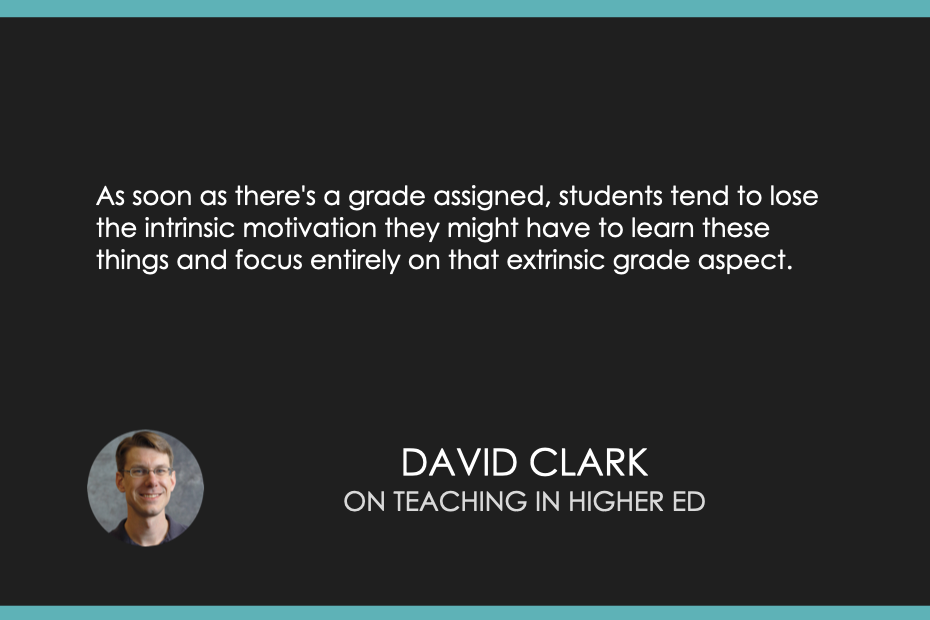
 Teaching in Higher Ed
Teaching in Higher Ed Using Alternative Grading Practices to Foster Student Learning
14 snips
Mar 28, 2024 David Clark, an associate professor at Grand Valley State University, discusses using alternative grading practices to foster student learning. Topics include the importance of feedback loops, reassessment without penalty, intrinsic vs. extrinsic motivation, and the four pillars of grading for growth. The conversation also touches on personal connections with students, vulnerability in academic settings, and transitioning to alternative grading methods.
Chapters
Transcript
Episode notes
1 2 3 4 5 6
Introduction
00:00 • 2min
Fostering Learning Through Feedback and Reflection
01:44 • 22min
Redefining Grading Practices
24:14 • 6min
Exploring Alternative Grading Methods Based on Student Revisions
30:04 • 3min
Alternative Grading Practices and Student Motivation
33:33 • 4min
Media recommendations: Board game and classic sci-fi book
37:45 • 4min


